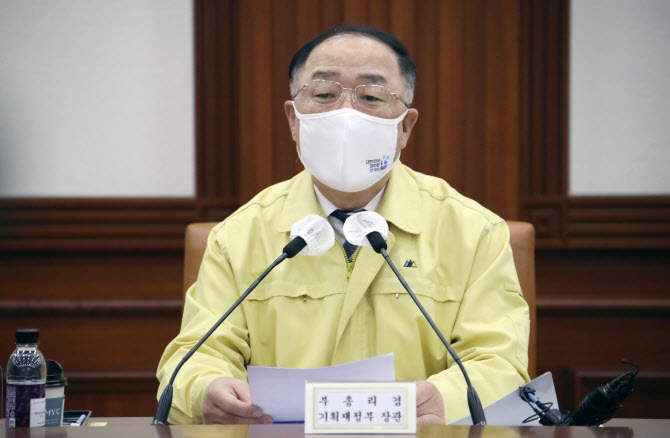|
On the 10th, the government held an emergency economic major meeting presided over by Hong Nam-ki, Deputy Prime Minister of Economy and Minister of Strategy and Finance, and decided on such job measures. The government decided to increase 29,000 public servants this year (16,000 national and 13,000 local workers). Considering the hiring according to the number of retirees, the actual number of hiring is expected to exceed 30,000.
It was also decided to hire public institutions at a previous level. The government has decided to hire more than 26,000 regular workers in public institutions this year. This is the largest since 2017 (29,800 people). By public institution, 1100 people, National Health Insurance Corporation 900, Korea Hydro & Nuclear Power 427, Small and Medium Business Bank 357, Korea Land and Housing Corporation 350, Korea Expressway Corporation 267, Korea Environment Corporation 180, There are 160 health insurance review and evaluation agencies.
The government also decided to hire 1042,000 people this year by increasing the number of direct jobs, which are short-term public jobs. In consideration of the corona employment shock, it has decided to complete the hiring of 830,000 direct jobs (79.6% of the plan) by March this year. 63,000 social service jobs such as seniors are also discovered, and 31,000 (48.3% of the plan) are hired during the first quarter.
In addition, in the first half of this year, the government will: △Measures to promote youth employment (1st quarter) △Measures for women’s jobs in response to corona and post-corona (1st quarter) △Simple to support job change in the post-corona era (1st quarter) △Lifetime jobs in response to future environmental changes A plan to support capacity development (1st quarter) and a plan to strengthen public employment services (first half) are also planned.
The reason why the government has come up with such measures is that the corona employment shock is more serious than originally expected. According to the January employment trend of the National Statistical Office released on the 10th, the number of employed persons aged 15 or older was 25818,000, a decrease of 982,000 (3.7%) from January last year. This is the largest decline since December 1998 (-128 million people) during the IMF financial crisis.
The number of unemployed people reached 1.57 million. This is the largest since the related statistics were prepared in June 1999. Due to social distancing, the number of lodging and restaurant jobs last month decreased by 367,000 from last January. The number of’recessed’ people who took a break without job search was 2715,000, an increase of 379,000 (16.2%) in one year. It increased by 105,000 people in their 20s and 71,000 people in their 30s.
However, as the number of public jobs is increased, the financial burden that the public must bear is expected to grow like a snowball. The average annual income of public officials last year was 64.6 million won (pre-tax income), and the total labor cost of public officials in the central government last year amounted to 39 trillion won. Of the 340 public institutions, the labor cost of 274 profitable businesses rose to 29,5742 billion won last year. The fiscal burden is even greater when considering the cost of deficit in public officials’ pensions exceeding 2 trillion won per year.
Experts pointed out that it should go in a way that creates private jobs by boosting business vitality through reinforcement of vocational training and old regulatory innovation.
So-young Kim, a professor of economics at Seoul National University, said, “The government is currently investing finances to create unproductive jobs and incurring excessive administrative costs. He pointed out that we have to go with the Jeonggong method.”

